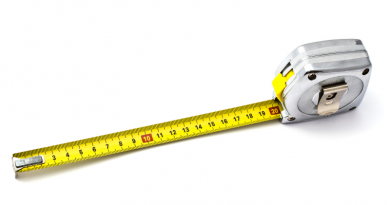How to avoid a PR disaster
Looking back there have been a number of PR disasters that have made the headlines, The European Super League, M&S Colin the Caterpillar, KFC with supply issues, not forgetting Number 10 and the Christmas parties, to name just a few. Negative PR is something that all businesses can be on the receiving end of and it’s important to remember that sometimes it’s down to circumstances beyond your control.
No one likes to be on the receiving end of negativity and as such it’s sensible to have a PR strategy in place that can be implemented if the situation arises. I’m going to outline below eight steps you can take should you find yourself in the eye of the storm, so whether it’s a poor review of a product or service or a disgruntled customer taking to social media to air their grievances or something worse you’ll know what to do.
- Be prepared – All businesses should have a communications strategy to cover them for when things go wrong. Prepare for the unexpected, have a plan in place that will guide your response and build resilience into your business that will help you to recover.
- Don’t panic – It can be very easy to jump right in and start trying to manage the problem. I’m not advocating you ignore the problem, simply that you respond in a planned and structured way. Take a step back, review what’s happened or been said where and by whom. Make sure that key people in the organization are aware of what’s going on and start to implement your crisis plan accordingly.
- Holding statements – Good examples of these are product recall notices. I’m sure we’ve all seen adverts on TV, in the media, and viewed social media posts highlighting problems with a particular product. They don’t sensationalize the issue, rather they inform and tell the public what to do if they’re affected, they also help to buy you time whilst you investigate what’s gone wrong. Depending on the nature of your business you might have a holding page on your website that you can refer people to, this can be a good way of capturing information of those affected. Just make sure you have the appropriate GDPR policies in place.
- Internal communications – without being overly dramatic you need to make sure that everyone in the organization is aware of the problem and who’s dealing with it. You want to avoid your employees speaking out, however well intentioned, as this can escalate the situation. Having simple procedures that your staff can follow will help you to manage the situation.
- External communication – consistency of message is paramount. Stick to the facts, acknowledge what’s happened and set out what you’re doing to rectify it. Doing this repeatedly across a wide selection of media outlets will help with damage limitation. If you’re going to put out a company spokesperson then it’s advisable for them to have had media training before-hand. The goal is to avoid a car crash interview and focus on trying to shut down the story as quickly as possible so that you can move forward and rebuild your reputation.
- Take ownership of the problem – If you’re at fault, then owning up and taking responsibility is the right thing to do. From a PR perspective it can also play to your advantage. If you’ve got supply issues because of extra border controls thanks to Brexit, or have had to close a production line because your staff have been hit by Covid then acknowledge the problem and explain what you’re doing to try and solve the issue. If nothing else this will help you to manage your customer’s expectations.
- Social media – If you find yourself in the middle of a PR storm then be sure to review your planned social media activity. You may wish to pause the planned posts and shift your focus and key messages. Make sure your social media team is aware of the situation although the chances are they may be amongst the first to realise there’s a problem that needs dealing with. Ensure that they know what the company position is and the key messages that you need them to get across.
- Expert help – If you already work with a PR then getting their help at the start can help to mitigate the situation. If you’re not in this position and you find yourself in the eye of the storm it’s well worth hiring an agency to help you. They’ll be able to give you objective advice and will have journalist contacts that they can call upon to help you address the situation and start rebuilding your reputation.
Every business will find themselves on the receiving end of negative PR from time to time. Dealing with the problem quickly, considerately and calmly will, in many instances, prevent it from escalating. Should you find yourself at the centre of a PR storm, think before your respond, make your team aware, keep your messaging consistent and seek outside advice if necessary.
Originally posted 2022-01-17 12:25:08.
- How to avoid a PR disaster - February 14, 2026
- What to consider before working with a PR agency - January 2, 2026
- Why you need a PR strategy for your business - November 15, 2025






